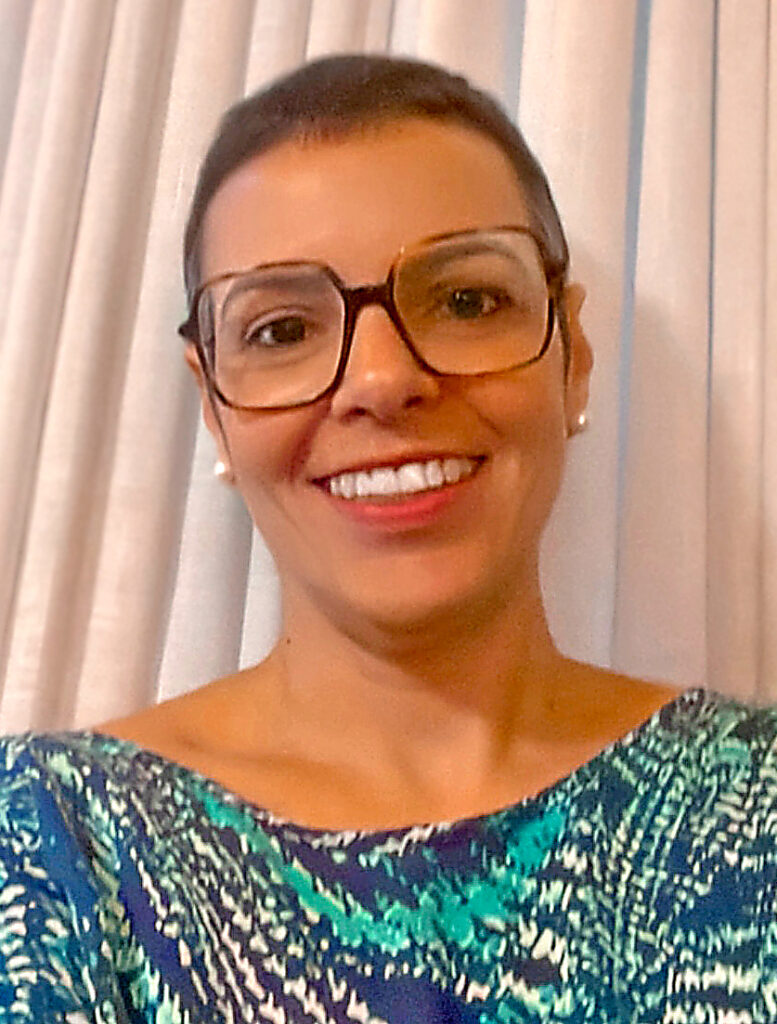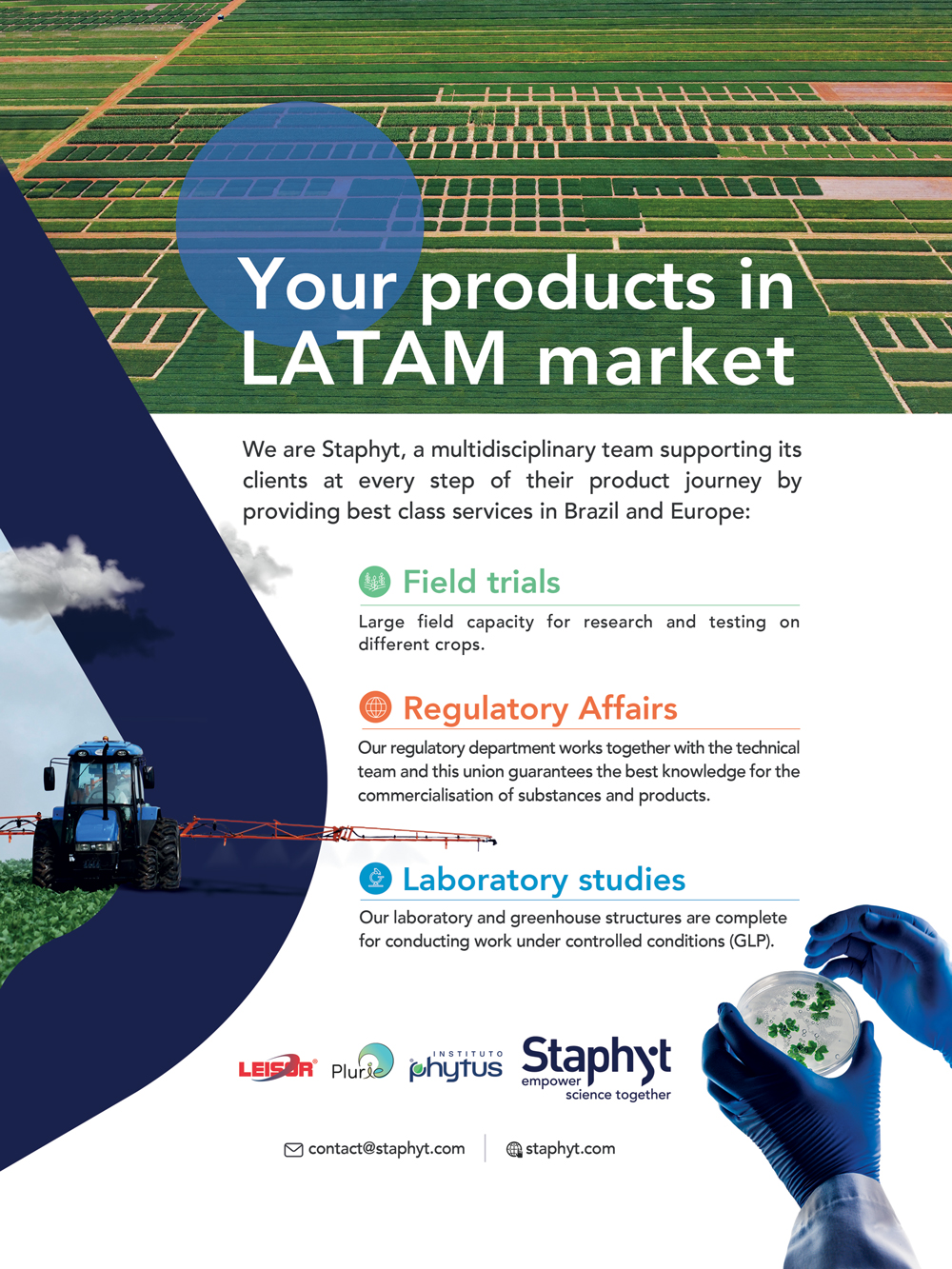Regulations: Central and South America
Scroll Down to Read
LATIN AMERICA UPDATE |
Focus on Brazil
By Fabiola Lara, Head of Regulatory Affairs LATAM, Staphyt Brasil Agro

For registration in Brazil, it’s important to understand the concepts involved in the registration process, starting with definitions for pesticides, biopesticides, and fertilizers, among other important categories. This knowledge will help companies understand how to position their products under the regulation.
The registration system in Brazil is very complex. Companies need to submit three different dossiers to three different agencies (Ministry of Agriculture — the owner of the registration processes; Ministry of Health — ANVISA; and Ministry of Environment — IBAMA). All three agencies need to evaluate the dossiers, each one with their area of responsibility, and the final registration is issued by the Ministry of Agriculture. A deep knowledge of the product is needed to be able to meet all the requirements and to deliver a high-quality dossier for registration.
After the approval of the registration by the federal level, there is another step before going to commercialization. The products need to be registered in all of the states of interest.
To go to the Brazilian market, the pesticides must pass every step of this process. It’s an extremely regulated environment and guarantees that any product placed in the market is safe for the population, applicators, and the environment.
Regulations for Biopesticides
In Brazil, there are discussions about new regulations, such as for microbiological products, phytochemical products, and the New Project of Law for Pesticides. These discussions will bring greater transparency and accuracy to modern legislation. It’ll impact farmers directly and their ability to access new technologies.
The Brazilian government is also working to streamline the biological regulation process. A review of the current legislation is happening to have a better understanding of each kind of biopesticide and a clear definition of the requirements for the registration.
Nowadays, the Brazilian Government already prioritizes the evaluation of the biopesticides. The time to have a registration for this type of product can be less than one year. The rigorous evaluation process is the same. All of the same needed studies are submitted and evaluated, but the government has increased their knowledge of biopesticides over the past years and has more experience evaluating these types of products.
In the last five years, we have seen a huge increase in approvals for biopesticides, showing the government’s emphasis on this important part of the market.
Snapshot View
By Javier Fernandez, Legal Counsel & Director of Regulatory Affairs, CropLife Latin America

For regulations in Mexico, Central America, and South America, the following are
countries to watch for changes:
- MEXICO
The country has two bills in Congress that may introduce hazard-based approaches and substantiate removal of highly hazardous pesticides (HHPs). In addition, agencies are pondering introducing risk assessment.
pesticides (HHPs). In addition, agencies are pondering introducing risk assessment. - COSTA RICA
In December 2022, Costa Rica issued an omnibus regulation substituting all existing regulations. It entered into effect on January 2023 and may impact renewal proceedings by introducing heightened ERA requirements. As of today, one-third of all existing registrations may not pass re-registration. - COLOMBIA
Colombia is enforcing a court decision to address fipronil and pollinator health. Although a public-private working group was set up, authorities drastically decided to ban all uses (even veterinary) of the product as opposed to working on risk mitigation. A similar court decision inspired cancellation of chlorpyrifos registration and may serve as precedent for more to come, whereby neonicotinoids are targeted. - ECUADOR
The country introduced a new regulation for re-entry interval. - CHILE
The country’s regulatory system has been taken over by the comptroller office and may introduce a proposal to withdraw registrations of up to 100 active ingredients. The policy action is preceded by paraquat’s registration removal in 2022. Just like in Peru, once a product cannot be legally sold in the country, it opens the floodgates to illegal trade. Brazil is facing a similar situation with illegal trade when they phased out paraquat. - LATIN AMERICA
Rotterdam Convention COP11 will address a proposal to introduce an Annex VIII to reduce requirements and the voting threshold to annex compounds (from consensus to three-fourths of countries ratifying the amendment). The region has struggled to understand that the Rotterdam Convention is one of the prior informed consents and has misinterpreted annexed compounds as those to be banned. This may impact not only finished products in the market, but also precursors for manufacturing. •
AlfRibeiro – stock.adobe.com
Antikwar1- stock.adobe.com
Photo of Fabiola Lara courtesy of Staphyt
